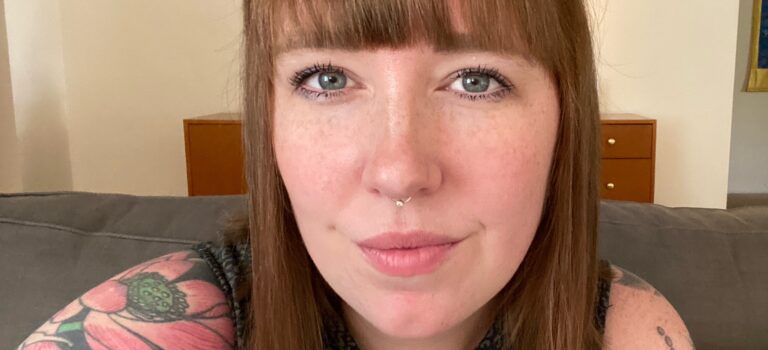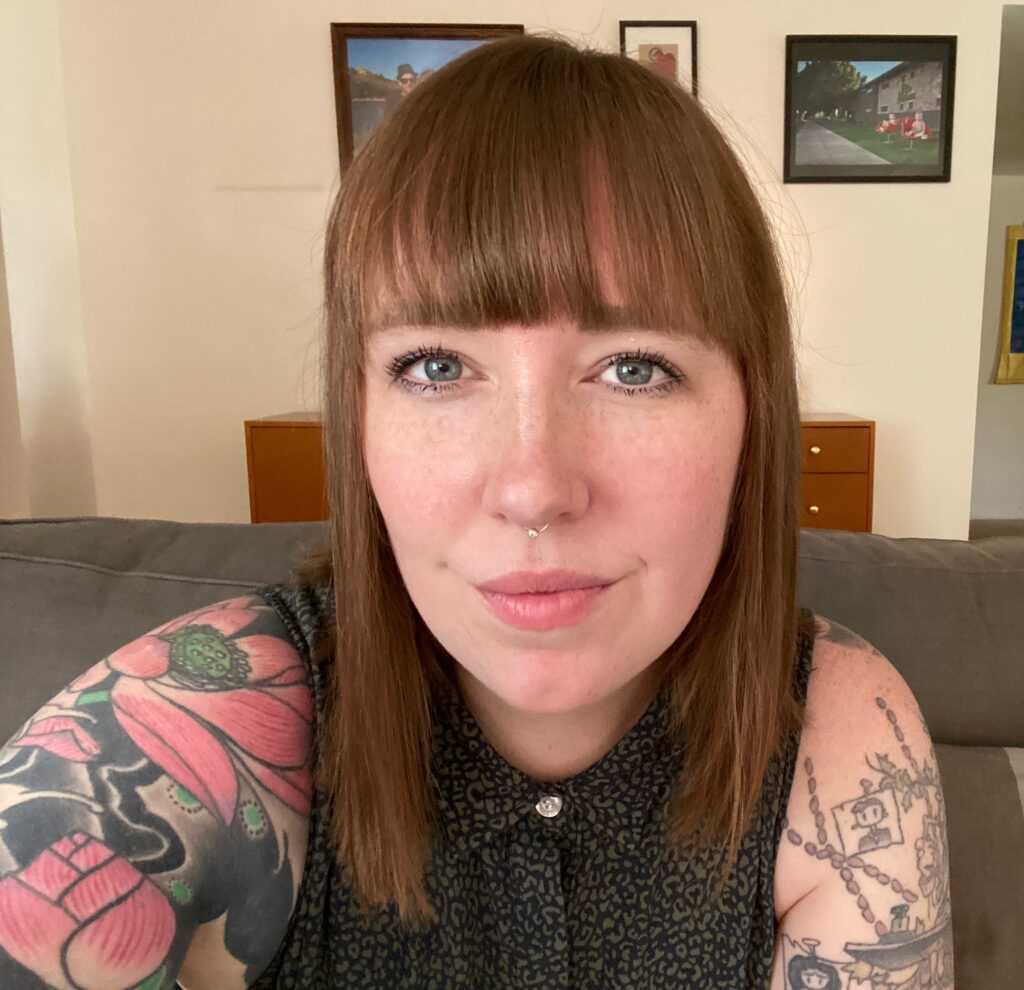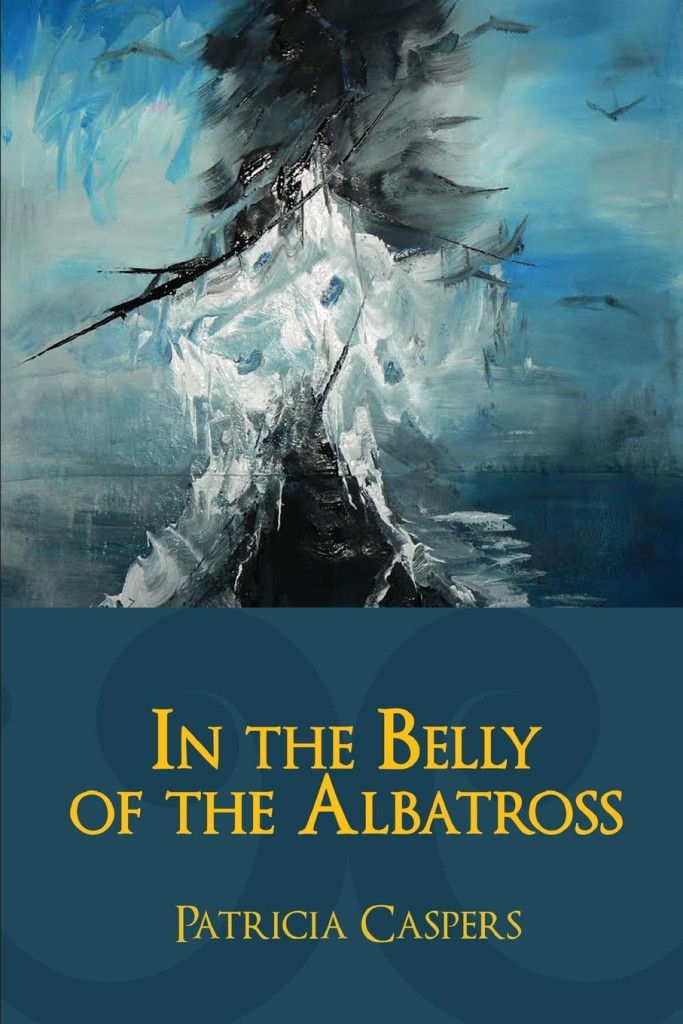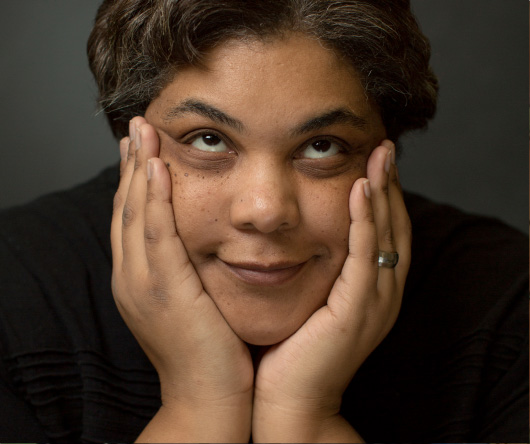We’re so excited to share an interview with past intern Leah Newsom, the Nonfiction Editor for Issue 15 and the Interview Editor for Issue 16. Find out about the lessons she learned at Superstition Review, what she’s working on now, and her relationship with art. The interview was conducted by our blog editor, Taylor Dilger.
Taylor Dilger: You were the nonfiction editor for Issue 15 and the interview editor for Issue 16. What were the most valuable lessons learned in these positions?
Leah Newsom: Well, they were both really different positions. I might have to transport myself through time. I remember at the same time I was the nonfiction editor, I was taking a nonfiction class, which was a workshop that was offered when I was a student. I don’t know if it still is, but it was cool because I don’t think at the time I really understood creative nonfiction as a genre, separate from journalism or essay writing, you know what I mean? So, for me as the creative nonfiction editor, it was still a continued learning experience about the genre and who the main players in that field are. It was a great learning experience to be immersed in a type of writing that I don’t normally do, but to be able to use transferable skills from being a fiction writer to identifying what I liked about nonfiction and what I liked about creative nonfiction.
I found creative nonfiction to be so much more experimental than I thought it would be and so I saw a lot of similarities between that and poetry. It felt like a really exciting space that people were writing in. I think one of the things about being an editor for a journal is that it’s valuable to be able to see the other side of the process because when you’re submitting to journals it can feel very isolating and you’re like everybody hates my writing and I’ll never get published anywhere and are they even reading it? It’s very anxiety-inducing, but knowing how the other side works helps you understand how your work is being read elsewhere, so that’s part of it.
But in the nonfiction space at Superstition Review for me, it was also learning the kinds of work that was being submitted to SR and sort of getting engaged in different spaces that creative nonfiction lives. Even now it has helped me identify books that I love. Creative nonfiction that I would like to write now is influenced a lot by what I learned as an SR editor when I was an undergrad. Being the nonfiction editor lent itself to the interview editor position because all the people that we interviewed were creative nonfiction writers. We interviewed them all at Nonfiction Now which is an international writing conference that happened to be in Flagstaff that year, so all of it was very serendipitous. If I hadn’t had the experience of taking that class for creative nonfiction, editing in that part of it, and learning about it, I would’ve been very ill-equipped to do those interviews in the first place.
TD: In your Superstition Review bio, it says that you were “an active participant in the Phoenix literary community, and [have] hopes to help develop [your] city’s focus on the arts.” In what way have you done that in the last couple of years?
LN: This might be a sad answer. I think, in fact, I’ve actually turned more inward. I used to be a part of the Four Chambers Downtown Phoenix literary art scene. I lived Downtown, I went to a lot of readings Downtown, I was an intern for the Write On, Downtown journal, you know? I was a reader for Spillers when that was an event happening at Crescent Ballroom. I was really a big participant in that scene and then when I went to grad school there was no time. Everything I did was at ASU and basically, I’ve been in an ASU bog since then.
In a way, I think that my writing community has also expanded outside of Arizona so I’m friends with a lot of writers around the country and especially in the days of Zoom my network isn’t necessarily local or ideas of locality have changed. That being said, I love Phoenix and whenever anyone trash talks it, I get very mad. My husband is a local business owner and owns two tattoo shops in central Phoenix and all of our friends are local artists. We remain in a community of artists, whether that be the exact same community of artists when I was a student, not so much. But I don’t know, I’ve always had dreams of running some kind of reading series. I ran an online literary magazine called Spilled Milk for a long time and I thought what if that could be a print one? But it’s also a question of I work 40 hours a week, I teach, I have a kid. It’s a lot.
TD: You were a published writer with a short story in Four Chambers Press and a flash fiction chapbook. Do you have any updates on what you’ve recently worked on or are currently working on now?
LN: Oh yeah, things have changed quite a lot since then. You can find links to these on my website, leahnewsom.com but I have short stories in Juked, PANK, Passages North, and Ninth Letter. I have a short story in Everything Change: an Anthology of Climate Fiction published by the Imagination and Climate Futures Initiative that was judged by Kim Stanley Robinson. Those are my more recent publications and then I am working on a novel right now. Novel writing is slow and kind of a slog. I think my last publications were about this time last year so it’s been a little bit of a dip while I’ve been novel writing.
TD: Do you have any information about your novel that you’d like to share?
LN: I don’t know…it’s hard to write a novel. The stuff that I’m thinking about in my novel has a lot to do with well-being, the ways that we talk about self-care, mental health, and ways in which those are used both constructively and in toxic ways to create strange tensions between people. Actually, here I’ll give you an anecdote. When I was in grad school, I wrote a short story that is now the short story in Passages North called “Break Point” in which there were two women and a man in the story, and the two women had a very toxic intimate relationship (if you read it you will find out why) but I realized that the man was a pawn. As a character, he wasn’t really doing anything other than being a thing that the two women were bouncing off of. So, I created a new revision tactic that sits with me to this day called “cut all the men out of the stories.” And when I cut the dude out of the story, the story got a lot better because the two women were now in tension with each other fully, as opposed to partially, and whatever space between them was removed, and then the story just clicked. So, my novel, very intentionally, is following that same “there are no men in the novel.” It takes place in an isolated place in the desert in which women are residents for some kind of vague treatment “for the sake of their own well-being” and then toxic intimate relationships ensue. It s a lot of work. It’s very hard.
TD: What does writing mean to you and how do you hope to share that with your students this semester?
LN: That’s a sweet question. What does writing mean to me? I mean writing is sort of everything, but I would rephrase that and say art is sort of everything to me. Writing for me was the art form that I mostly leaned into because it felt the most accessible to me. I’m very bad at drawing, I’m not a visual artist, I’m incapable of a lot of the skillsets or haven’t learned them.
For a long time, I thought I was going to be a musician. I played music all throughout my childhood and high school, but I think for me writing was a place where I felt really comfortable. I could string words together and I felt good about them in a way that I couldn’t play my guitar. Being in that space, initially, for me was, “This is a way I can make art.” This is a way I can make art. I mean it sounds weird. It sounds like I settled for it in some way, but I think that to me writing has so much possibility. Writing can be anything. Writing is so vast.
I’m sure you’ve heard your professors say this before, but it’s the closest thing we get to being able to see inside someone’s head. And that’s kind of magical, I think. So…writing. I don’t know what that means to me, I just think I’m continually in awe of it. I read a book that I love and I’m like, “Wow.” Whereas the music that I loved in high school I’m just like, “What?”
For my students, the one thing that I remember when I was an undergrad, I felt what was getting squished out of me, in grad school as well, was the actual creative part of writing. I felt like there were all these new rules I had to follow and plot structures. I had to write a 15-page story that had a certain word count and it had to have a character that had to have an epiphany, or something had to change, or whatever. It was partially because A. I hadn’t read enough to see what the alternatives were and B. when you’re in a creative writing classroom a lot of what you’re there to get is the rules and the assumption is that your creativity and your interestingness will persist through those rules. So, I hope that my students this semester do not feel like they need to subscribe to the rules, but they can take what is useful to them, run with it, and not let the rules of fiction writing squish whatever creative genesis they started writing in the first place for.
TD: What is your favorite book at the moment?
LN: Oh wow, that’s a loaded question. I’m reading actually a really incredible creative nonfiction book right now. I’m not sure if it’s my favorite book at the moment, but I’m reading Blueberries by Ellena Savage. I was gifted this, but my friend had to buy the UK version because the U.S. version is out of print. She’s an Australian writer. Very experimental essays. Like one of the essays that I just read was in columns, which is interesting. Another one was in an outline, like bullet points and so there would be a paragraph or her thought and then all of it is like and also this, also this in outline form. She’s doing really interesting, formally innovative creative nonfiction that is thinking about feminist issues, sexual assault, gender identity, and stuff like that, but it’s very, very personal. She’s laying it out there in a way that I probably never would. But she’s a beautiful writer. I’m really liking it.
You can find Leah and read all of her mentioned writings and more on her website.




